Happy Earth Day! To celebrate, we’re highlighting Alita Cafe - a cafe in the BID that focuses on sustainable business practices from the top down. Jacob Marre is a barista at Alita Cafe and SEA who’s published a report on Alita’s sustainability practices. The report (linked here and posted below) outlines Alita’s commitment to reducing its emissions, examines Alita’s resource usage, and gives suggestions on how to improve even further.
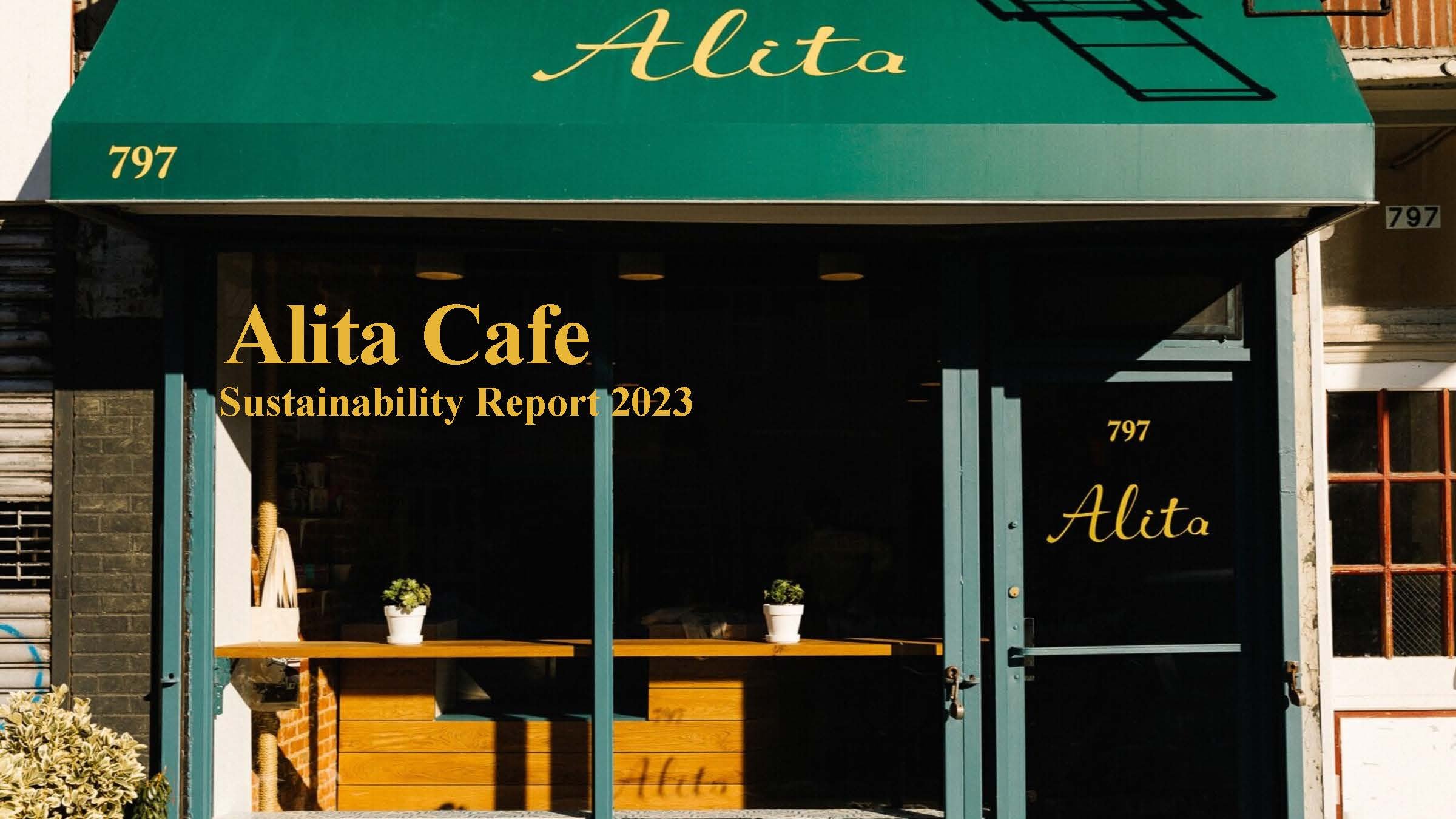
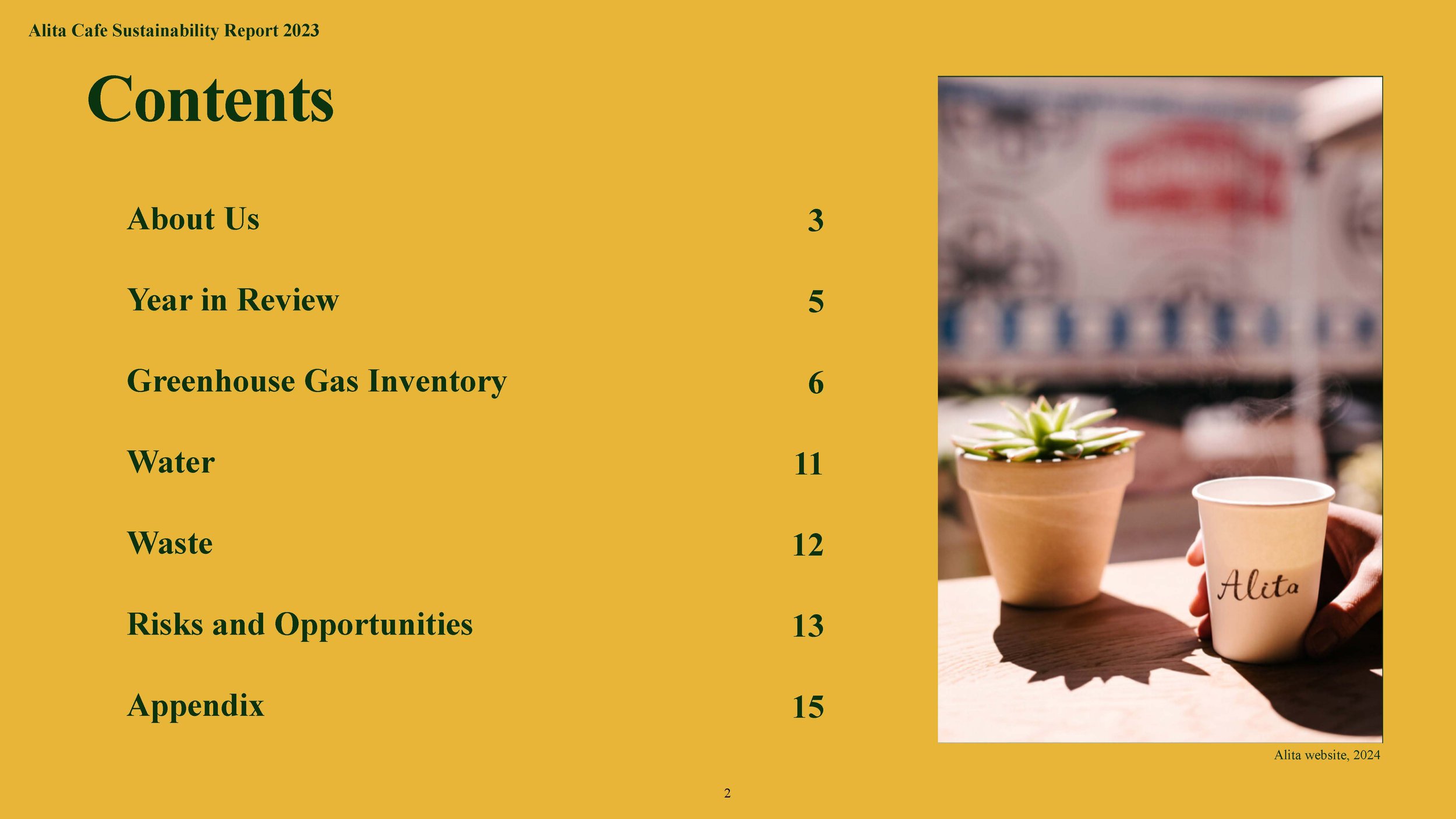
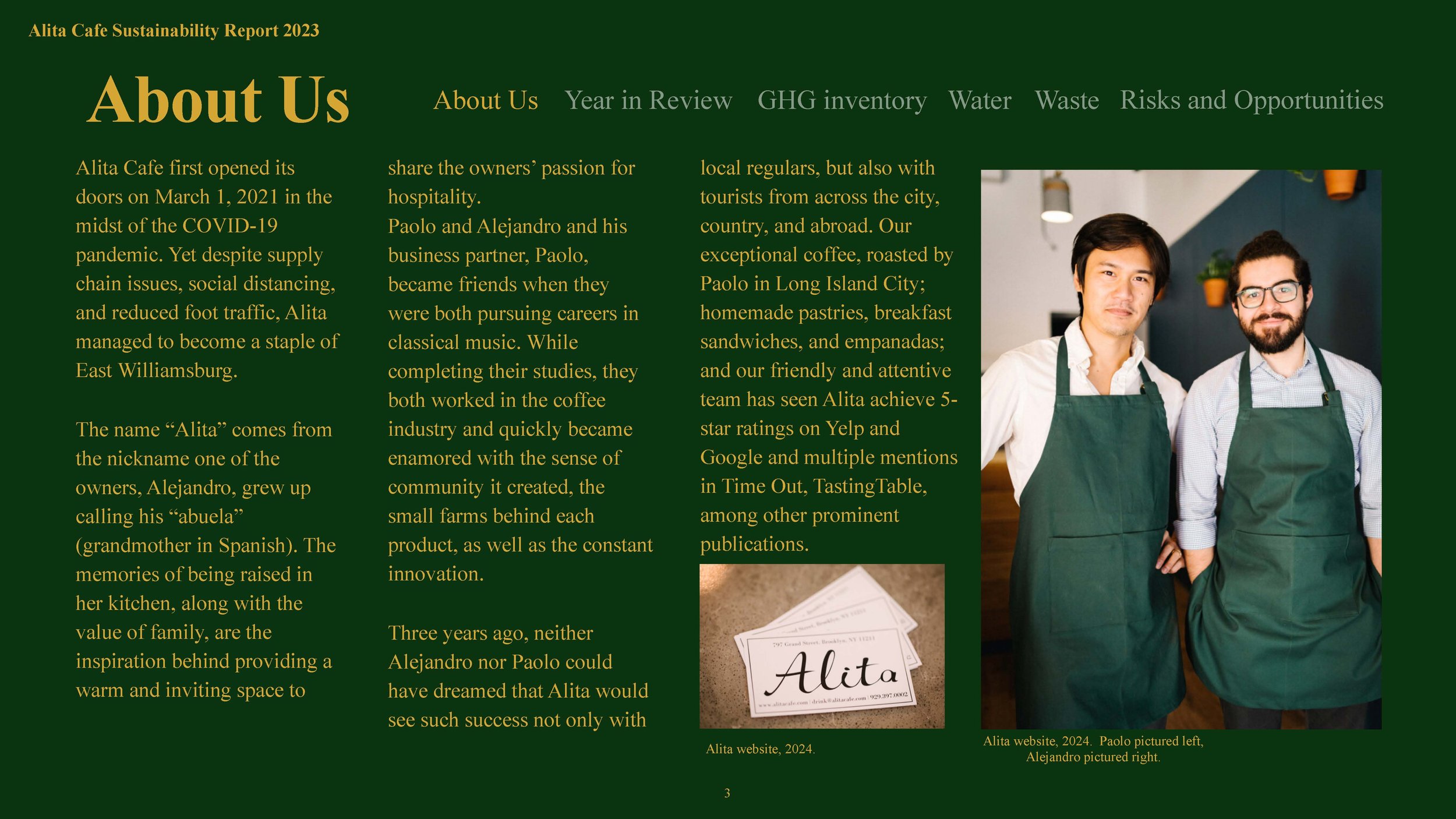
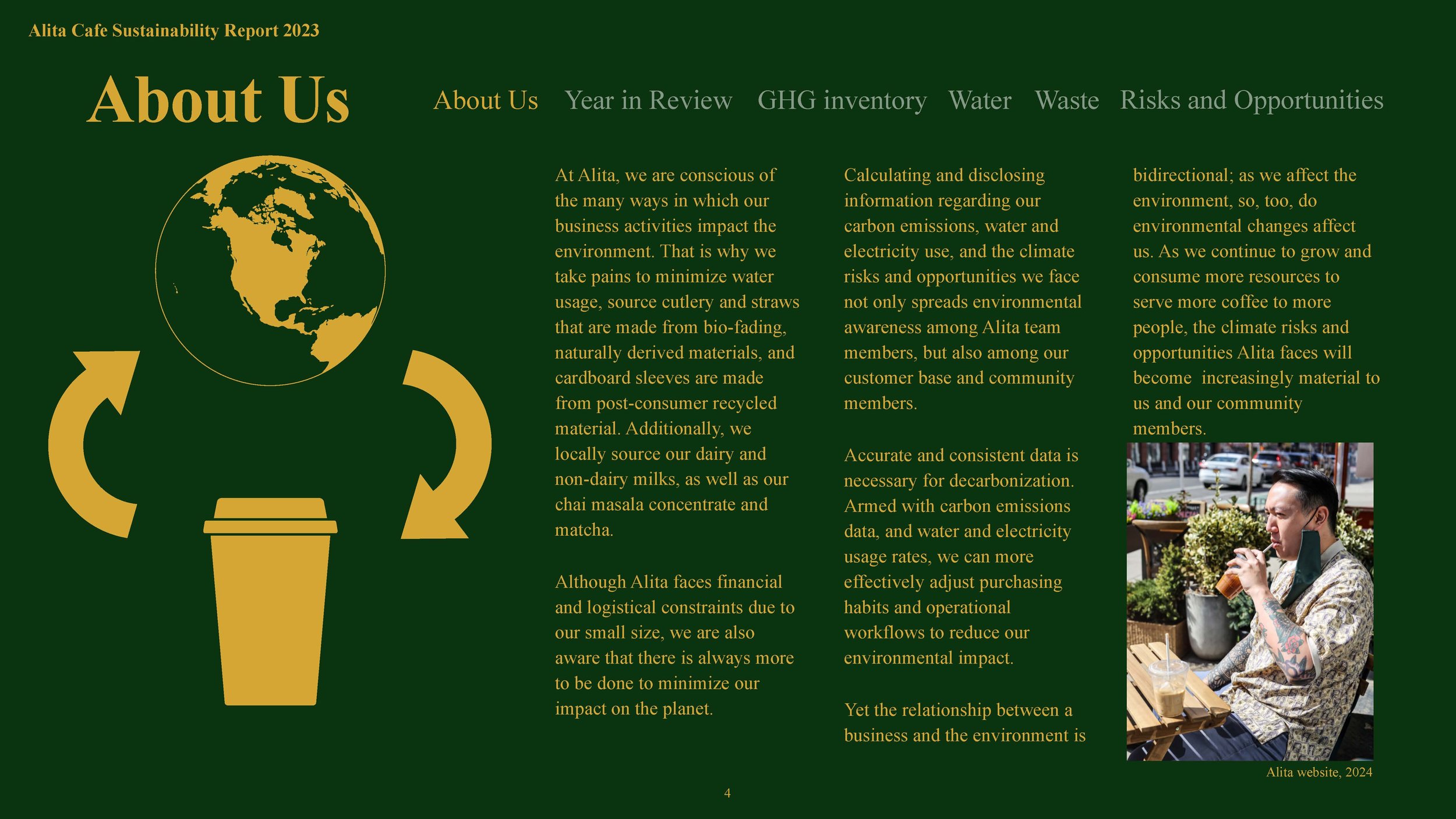
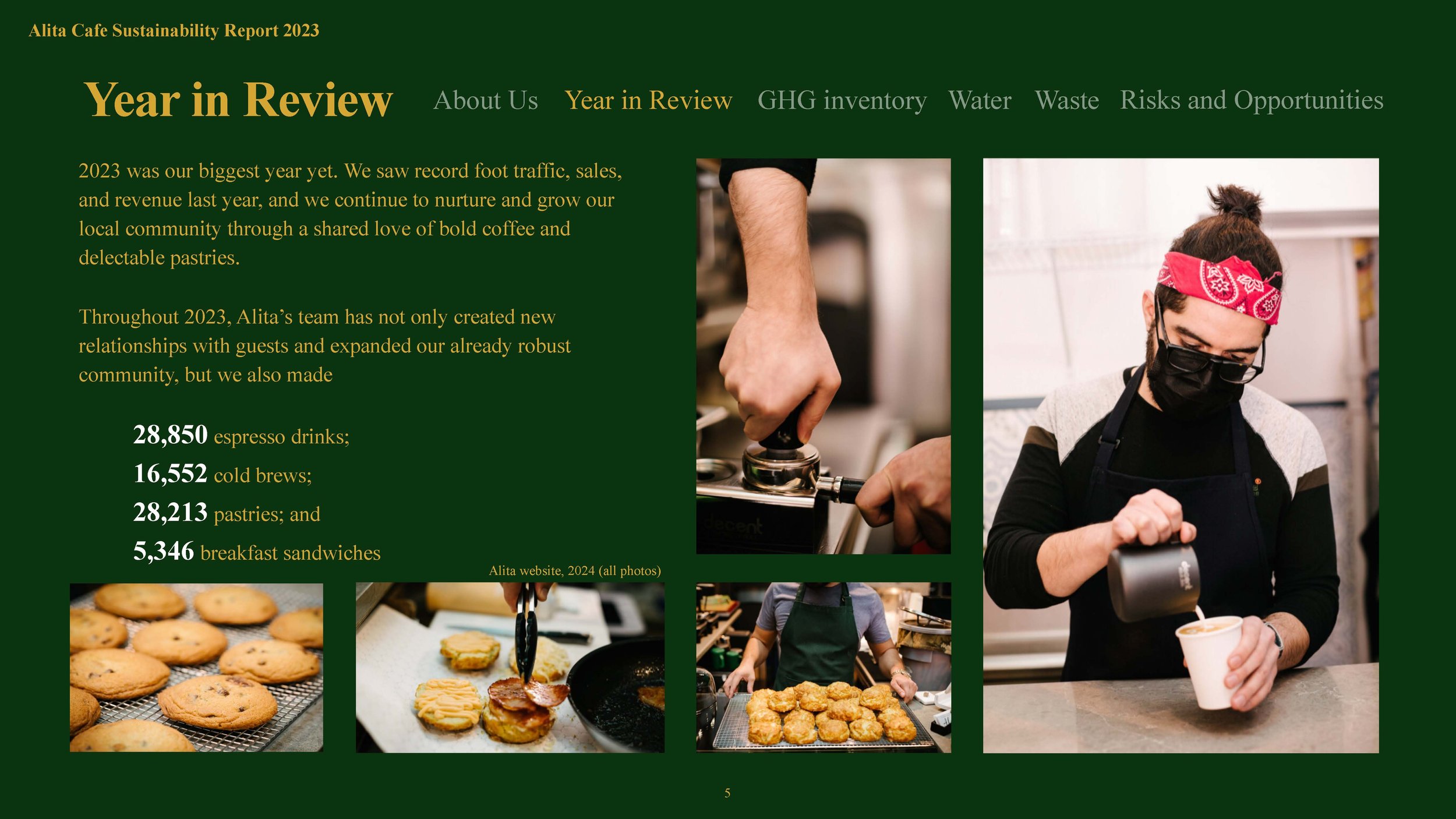
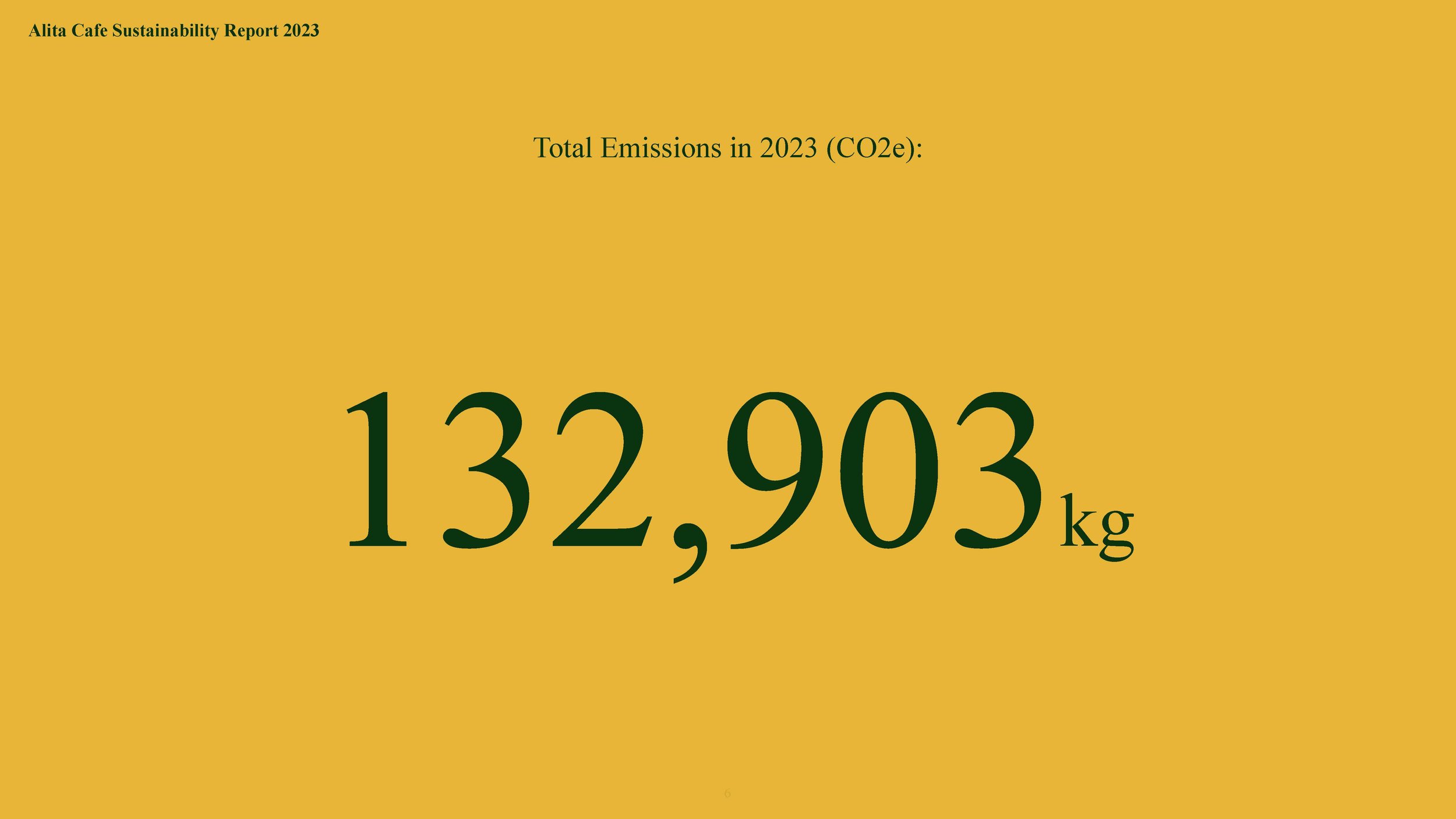
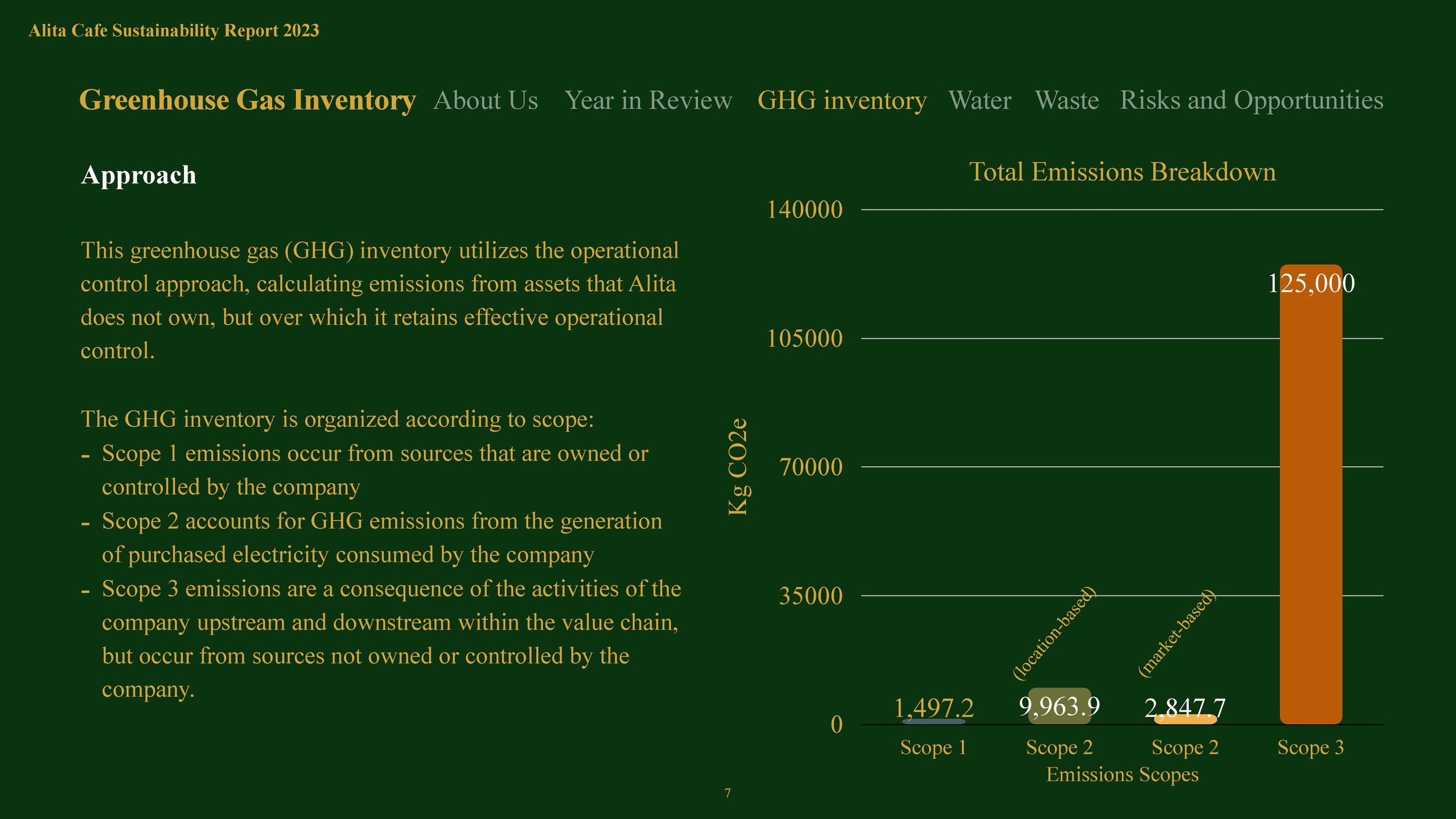
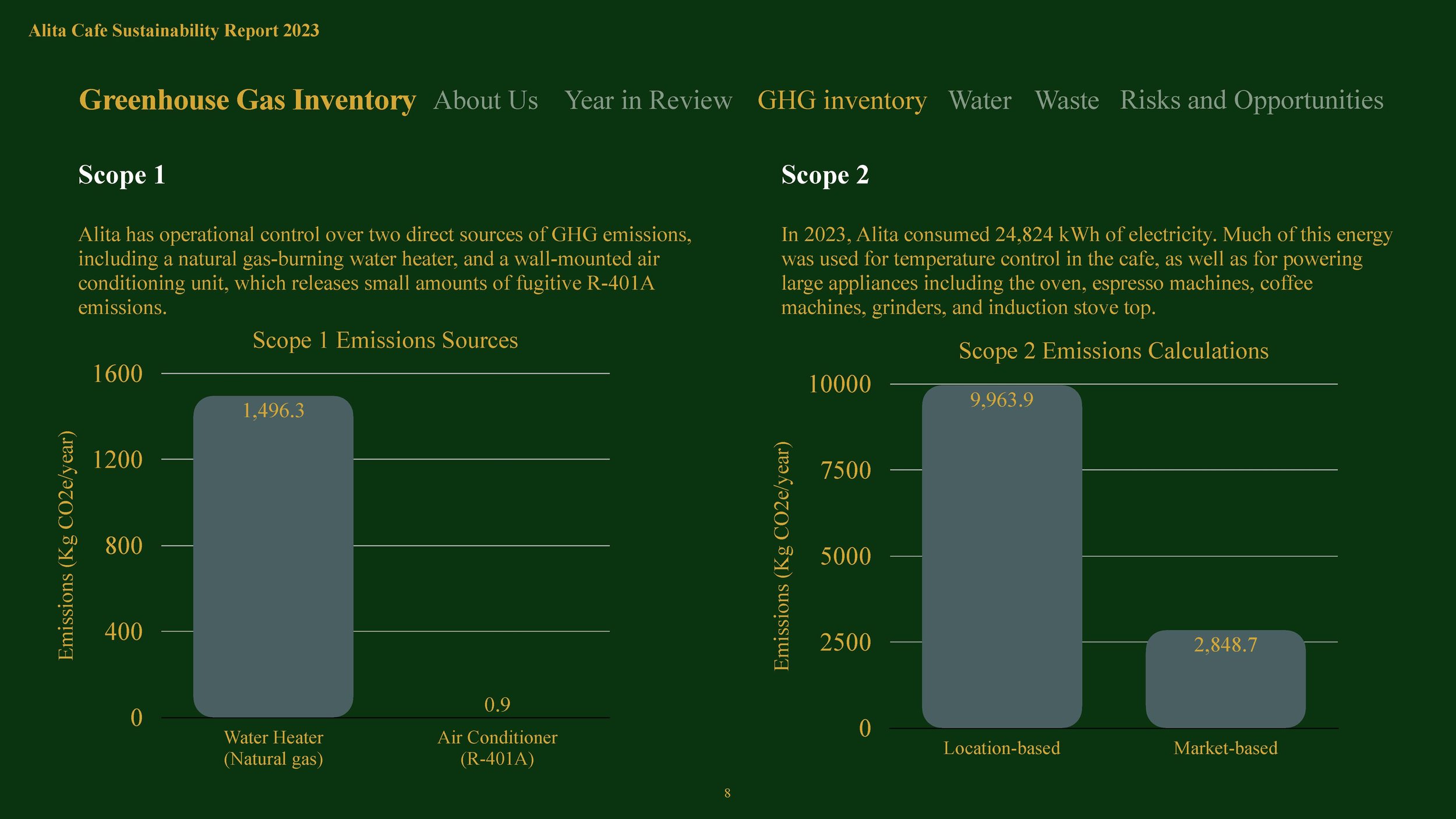

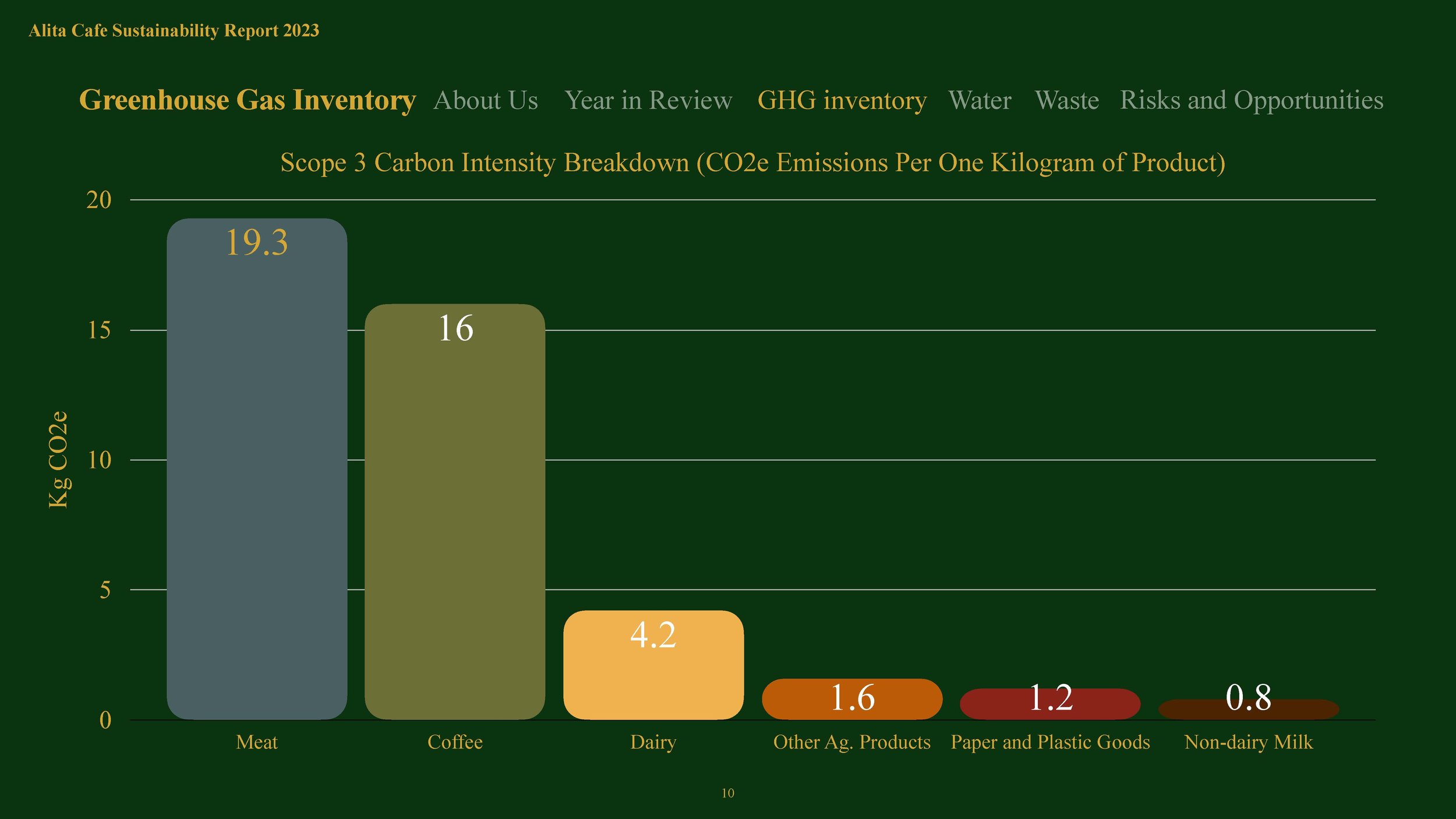
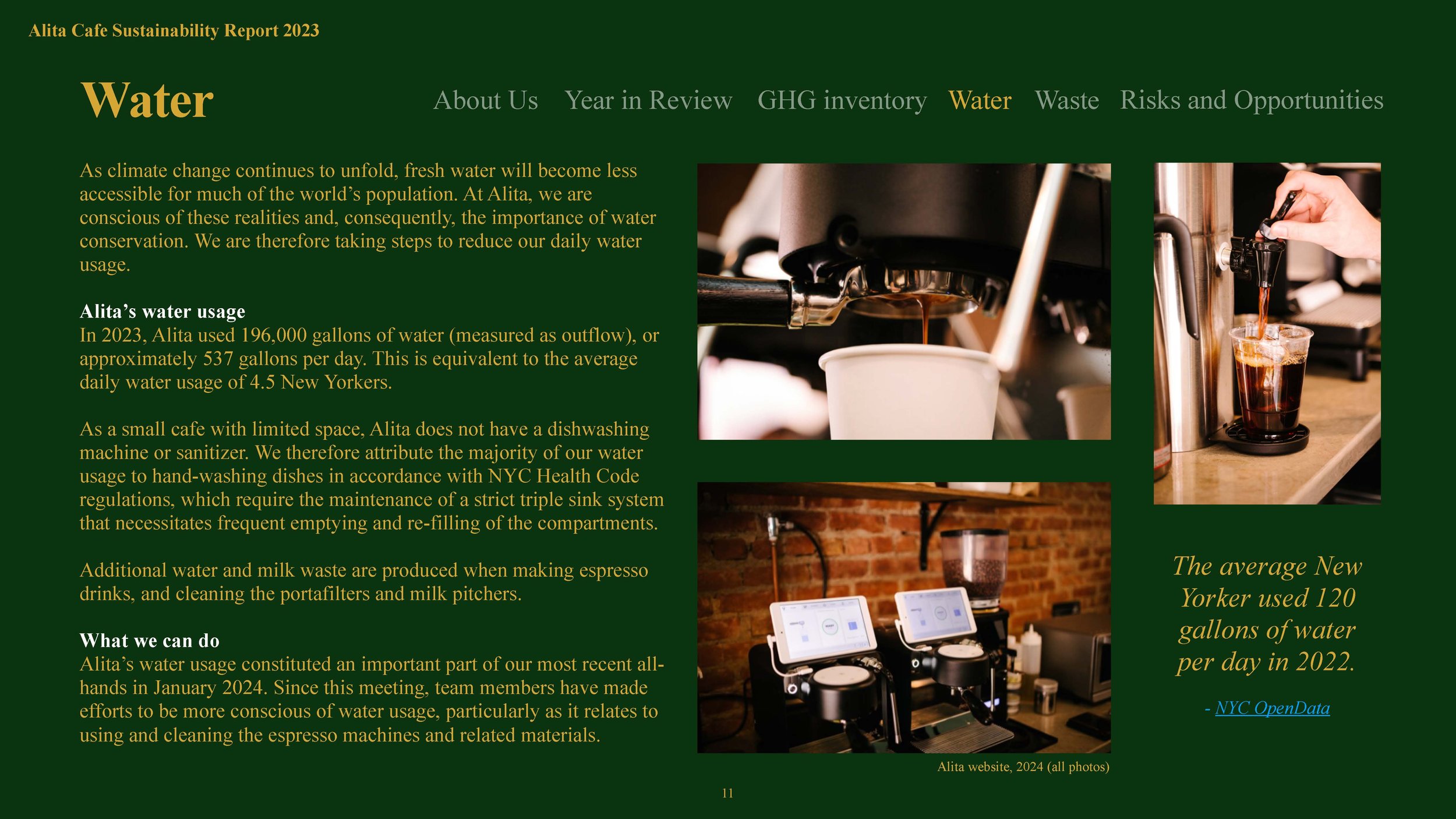
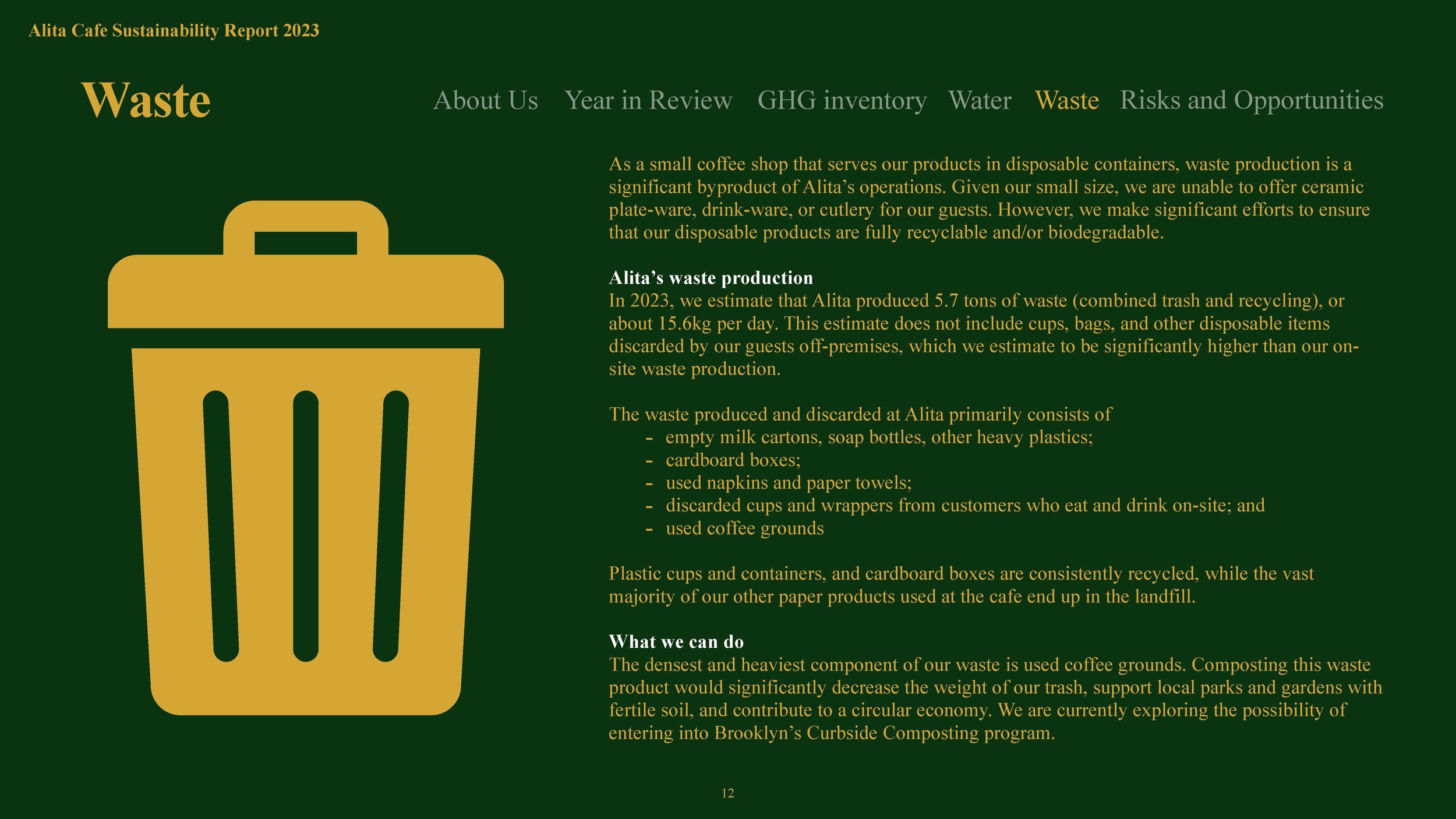

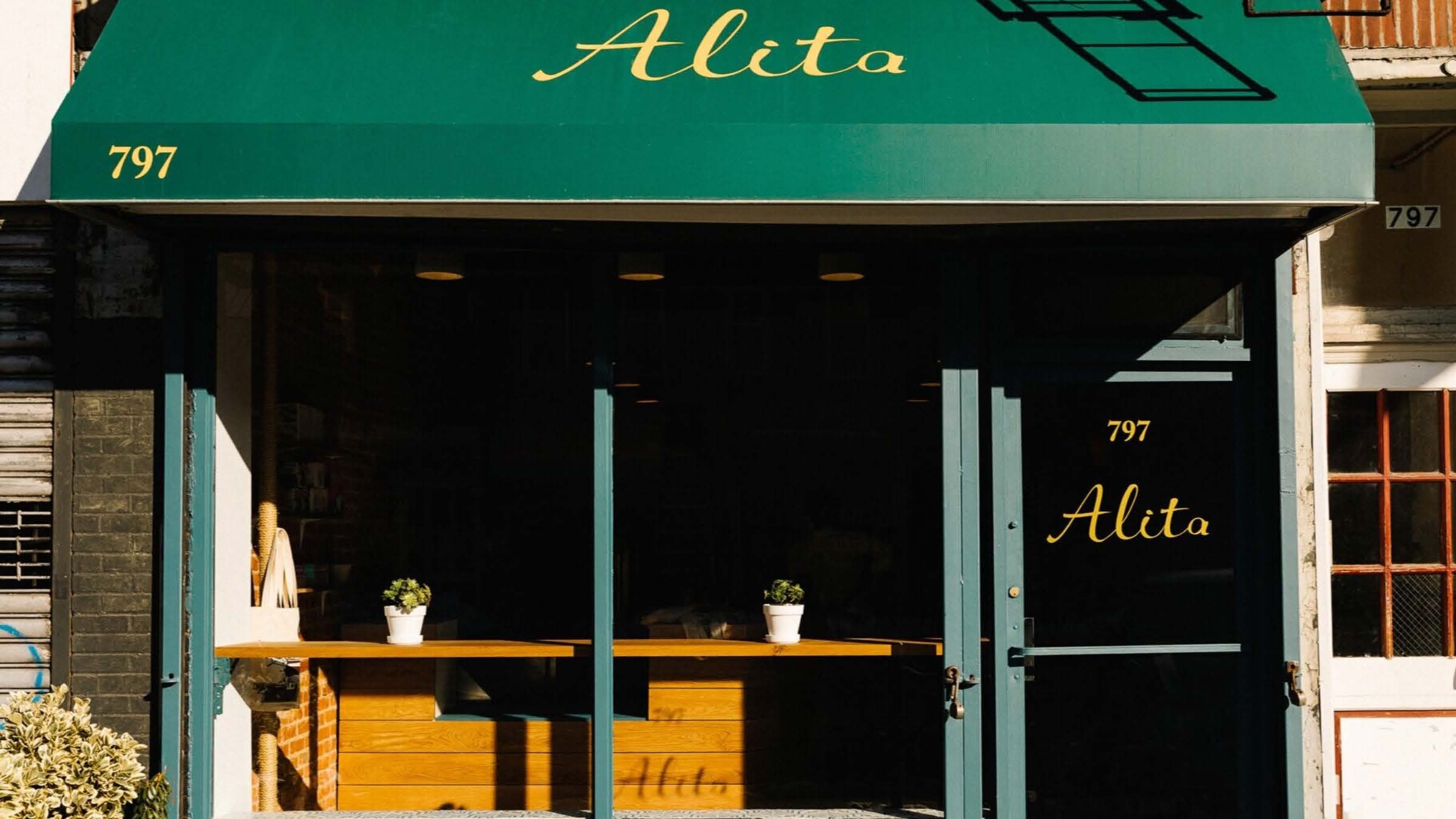

We caught up with Jacob and Alejandro Ceballos, co-owner of Alita Cafe, to talk about how Alita works to lower their carbon footprint.
Jacob Marre, SEA and barista at Alita Cafe
Jacob is a certified SEA (Sustainability Excellence Associate) and is passionate about sustainable business practices. His report goes into immense detail about every aspect of Alita Cafe’s sustainable business practices, going so far as to report that Alita used 537 gallons of water per day. This is equivalent to 4.5 New Yorkers, which is impressively low water usage for a cafe. After a staff meeting in January 2024 about water usage, employees have been even more conscious of water usage. Jacob makes a handful of suggestions to improve sustainability at Alita; one being composting Alita’s coffee grounds. He states that composting the coffee ground would not only reduce Alita’s total waste, but also support local parks and gardens.
Jacob’s report concludes that most of Alita’s emissions come from their suppliers, even when working with more eco-friendly partners. He emphasizes the importance of collective bargaining amongst businesses to reduce suppliers carbon footprints, saying:
“Small and medium-sized businesses often lack sufficient bargaining power when trying to get suppliers to reduce their greenhouse gas emissions, an essential step in reducing their own scope 3 emissions. I think that membership to organizations such as Grand Street BID, New York State Small Business Development Center, and Small Business Administration, among others, can allow many small businesses to band together and, through their combined purchasing power, affect positive change up and down value chains worldwide”.
Paolo (left) and Alejandro (right), co-owners of Alita Cafe
Owners Alejandro Cabellos and Paolo Maliksi work to reduce their emissions at every level, starting from where they source their coffee beans all the way down to the straws and utensils. Paolo works to source coffee exclusively from farms with eco-responsible growing practices that farm efficiently and sustainably. Due to Alita’s small space they are unable to offer ceramic mugs; Alejandro works to mitigate this by having all of their utensils, cups and straws be biodegradable. Agave straws and utensils, eco-friendly paper goods, and the option to fill your own thermos are all available at Alita.
Alejandro attributes Alita’s success in sustainability to a few key business practices. As mentioned earlier, the sourcing of coffee and use of sustainable utensils is important; but Alejandro also talks about taking it upon himself to reduce emissions on a daily basis. This comes in the form of smaller steps that when added up have a large impact on Alita’s emissions.
Alita sources their own pastries, choosing to make everything from scratch in house as opposed to buying them wholesale. This eliminates the emissions a truck would produce delivering them. Alita uses energy efficient appliances, reducing their energy consumption. They opt to use cloth aprons instead of disposable, Alejandro washing them with his own laundry. Rags are used instead of paper towels, and employees bring their own thermoses and mugs to drink beverages from. Alejandro shares information on cost and waste usage with his employees, encouraging them to come up with their own ways of being sustainable and working together as a team.
Alejandro encourages other businesses to take the initiative to be more environmentally sustainable in their own ways, in both daily work and on a larger scale with suppliers.



